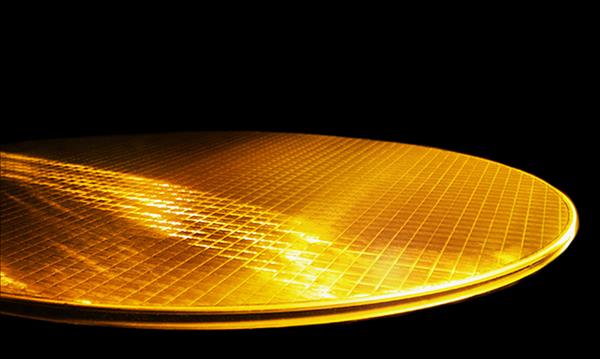(MENAFN- Asia Times) A Chinese cybersecurity watchdog has launched an investigation into the products of Micron Technology, an American memory chip maker – timing the announcement of the probe to come right after Japan joined hands with the United States and the Netherlands to tighten export bans on chip-making tools to China.
On Friday, the Japanese government unveiled plans to control exports of 23 items to China, starting in July, in order to“prevent the military diversion of technologies.” On the same day, the Cyberspace Administration of China (CAC) announced it was looking into Micron's products sold in China.
As what is being dubbed China's first retaliation against the US chip export bans, this is an extreme case that may end up kicking Micron out of Chinese markets, providing more opportunities to local players including YMTC, said some IT experts.
However, Mao Ning, a spokesperson of the Chinese foreign ministry, said in a media briefing on Monday that the problem is merely“a normal regulatory measure taken to maintain national security” Mao added:“Both Chinese companies and foreign companies operating in China must abide by Chinese laws and regulations and must not endanger the country's national security.”
Mao declined to comment on whether China will investigate the products of other US chip makers.
Micron and China: a fraught history
Some Chinese commentators say Beijing has considered all factors before starting a probe into Micron. They also say there is bad blood that explains why Micron was chosen as the first investigation target.
Cheng Qian, a Chinese IT writer, notes that in 2017 Taiwan's United Microelectronics Corp was accused of having stolen trade secrets from micron and sharing them with Fujian Jinhua Integrated Circuit.

Fujian Jinhua corporate campus. Photo: handout
Cheng says Fujian Jinhua could not push forward the construction of its foundry due to this lawsuit and was later added to the US entity list of firms subject to sanctions.
He says a patent lawsuit filed by Micron against CXMT, a Hefei-based DRAM maker, in 2018 also led to the later US decision to ban the export of 18nm or more advanced DRAM chips to China. He says that, over the past five years, Micron is on record as having lobbied the US government 170 times – with two thirds of the cases involving trade and intellectual property rights issues related to China.
“Micron has lobbied the US Commerce Department and the Office of the United States Trade Representative most frequently since 2018,” Cheng writes.“It is also the only US chip firm that has raised questions about China's competition.”
A Shandong-based columnist says in an article that Micron may have persuaded Washington to add Chinese memory chip makers, including Fujian Jinhua, CXMT and YMTC, to the US entity list so that Micron can boost its global market share.
He says Micron also echoed the Biden administration's“decoupling” policy last year by dismissing a 150-strong DRAM research team in Shanghai and luring more than 40 Chinese engineers to move to the US.
The columnist alleges that the US has stolen 140 gigabytes of data from Chinese servers that used Micron's products in recent years and therefore it is necessary for China to investigate the US firm's products to protect the country's data security.
Last September, China's National Computer Virus Emergency Response Center (CVERC) claimed that the US National Security Agency (NSA) Office of Tailored Access Operation (TAO) had used a cyberweapon known as“Suctionchar” to take control of computer servers at Northwestern Polytechnical University (NPU) in the city of Xi'an.
The CVERC claimed TAO had stolen 140 gigabytes of high-value data from China over the past few years. NPU called the police last June after
it found malware and trojan viruses in its computer servers. The NSA has not responded to the accusations so far.
Impact on Micron At the end of last year, Micron was the world's third largest dram manufacturer with a market share of 23%, compared with Samsung's 45.1% and SK Hynix's 27.7%. Smaller players include Taiwan's Nanya Technology (2.1%) and Winbond (0.8%).

Micron was also the world's fifth largest nand manufacturer with a market share of 10.7%, after Samsung (33.8%), Kioxia (19.1%), SK Hynix (17.1%) and WDC (16.1%). YMTC had recorded a 5% global market share in 2021 but it is facing difficulties to maintain it amid the US sanctions.
Last year, Micron's revenue from China amounted to US$3.3 billion, about 11% of the company's total revenue. The figure more than tripled from US$5.3 billion in 2016 to US$17.4 billion in 2018 before the firm had legal disputes with Chinese firms.
“It is not a reckless decision for China to fight back against Micron but a strategic move prepared for a long time,” a Chinese commentator called Situ Yangwei says .
“China has a huge consumption market, as well as strong technological strength and innovative ability,” Situ writes in an article.“If the US does not respect China's interests and dignity, the competition between China and the US will intensify and create a bigger negative impact on the global technology sector.”
He says if Micron fails to fulfill the requirements of the CAC investigation, it will have to leave the Chinese markets.
Mainland production It remains unclear how the CAC investigation will affect Micron's production plans in mainland China.
The company set up a DRAM packaging and testing factory in Xi'an 2006. It recorded a combined import and export of US$19.65 billion last year, maintaining its status as the biggest manufacturer in Xi'an for the 16th consecutive year. As it is not a chip foundry, it has not been affected by any of the US sanctions.
It laid off some staff in China last year after the local government temporarily shut down its factory in late 2021 amid Covid outbreaks in Xi'an.
Last October, Micron announced its plans to invest up to US$100 billion to build the world's largest semiconductor foundry in New York. It will not be allowed to expand its facilities in China if it is granted US subsidies.
read: china drops the gauntlet on nsa's serial cyberattacks
Follow Jeff Pao on Twitter at
@jeffpao
Like this:Like Loading...





















Comments
No comment